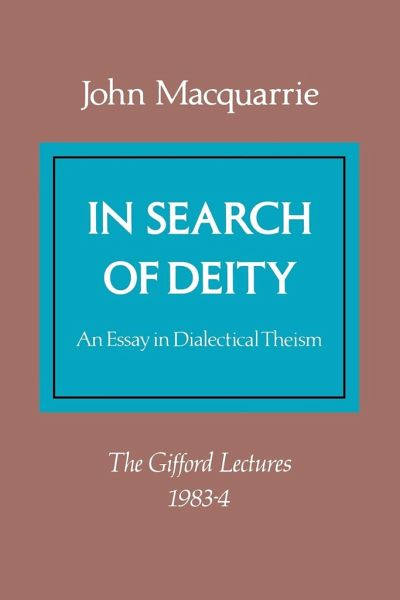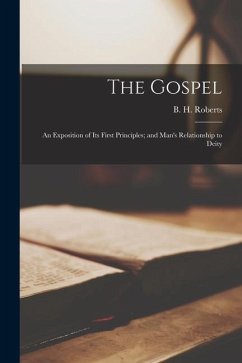
In Search of Deity
An Essay in Dialectical Theism
Versandkostenfrei!
Versandfertig in 1-2 Wochen
38,99 €
inkl. MwSt.

PAYBACK Punkte
19 °P sammeln!
he classical defence of, and arguments for, belief in God have not proved completely satisfactory, particularly in the perspective of modern times, and in the Gifford Lectures for 1983-4, given at the University of St Andrews, Professor Macquarrie puts forward an alternative. He calls his approach 'dialectical theism': dialectical, to indicate that he seeks to avoid the onesidedness of classical theism, and theism (as opposed to pantheism or panentheism) to show that he is still concerned to arrive at a satisfying conception of God. After indicating some of the weaknesses of classical theism, ...
he classical defence of, and arguments for, belief in God have not proved completely satisfactory, particularly in the perspective of modern times, and in the Gifford Lectures for 1983-4, given at the University of St Andrews, Professor Macquarrie puts forward an alternative. He calls his approach 'dialectical theism': dialectical, to indicate that he seeks to avoid the onesidedness of classical theism, and theism (as opposed to pantheism or panentheism) to show that he is still concerned to arrive at a satisfying conception of God. After indicating some of the weaknesses of classical theism, and outlining other approaches which have been put forward, Dr Macquarrie discusses a long series of thinkers who, he argues, represent an alternative tradition: Plotinus, Dionysius the Areopagite, Johannes Scotus Eriugena, Nicholas of Cusa, Leibniz,Hegel, Whitehead and Heidegger. In the last section of his book, against this background he develops his dialectical concept of God, re-examines the proofs for the existence of God and shows how dialectical theism has a bearing on spirituality, ethics, theology and world religions.







![The Report of the Aborigines' Search Committee of the Meeting for Sufferings, Read at the Yearly Meeting 1840 [microform]: With the Address to Lord Jo Cover The Report of the Aborigines' Search Committee of the Meeting for Sufferings, Read at the Yearly Meeting 1840 [microform]: With the Address to Lord Jo](https://bilder.buecher.de/produkte/65/65641/65641389n.jpg)

![Back to Oxford [microform]: a Search for the Essentials of Methodism Cover Back to Oxford [microform]: a Search for the Essentials of Methodism](https://bilder.buecher.de/produkte/65/65495/65495329n.jpg)


